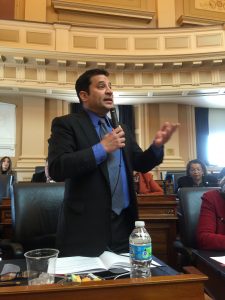 My passion for fighting injustice stems from personal experience. I know the pain of bad laws, and I know how good laws improve people’s lives.
My passion for fighting injustice stems from personal experience. I know the pain of bad laws, and I know how good laws improve people’s lives.
The greatest joy I receive is when I have solved someone’s problem: when a law I wrote or a creative solution I’ve found opens up a door that a citizen believed was forever closed in their face.
My most important achievements took many years to accomplish. But I’ve found in life that if you’re persistent and never give up, you will eventually succeed. So I divide my goals into “successes” and “not-yet-successes.”
Thank you for visiting my website! Click any of the issue areas below to learn in detail about my policy agenda. If you have any questions, please do not hesitate to contact me. And feel free to make suggestions. My best ideas often come from those I serve.
I will be the first full-time Lieutenant Governor in Virginia history, using the extra 10 months that my competitors will spend at some other job to work for you–meeting folks in Virginia’s 133 counties and cities, listening to you, and bringing your ideas back to Richmond.
The Lieutenant Governor is the only person in Virginia Government that serves both the Executive and Legislative Branch. It can serve as the perfect conduit for the best ideas, coming from the people we serve to both the Executive Branch that implements them and the Legislature that changes laws to make them better.
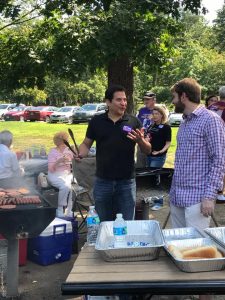
Yet, for centuries now, Virginia’s Lieutenant Governors have done only the constitutional minimum they were required to do: preside over the Senate for two months, break ties, and perhaps check on the health of the Governor from time to time. That’s it. Then, for ten months, they returned to another job: lawyer, doctor, or business owner.
Ask yourself: is that the best we can hope for from a statewide elected official?
I don’t think so. I think Virginia’s Lieutenant Governor can play a powerful role in bringing the Commonwealth together, connecting its citizens to their Government and making the Government transparent and accountable to the citizens we serve.
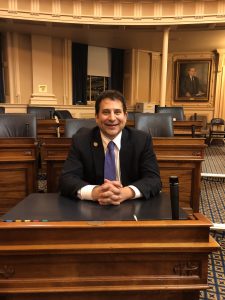 When Congressman Don Beyer was Lieutenant Governor, he had a legislative agenda, just as the Governor and the Attorney General do. I would dust off that tradition unused for decades and bring it back with a full legislative agenda. I would also work with the Governor, whomever she or he may be, to form workgroups to solve thorny problems, much as the President of the United States tasks the Vice President today.
When Congressman Don Beyer was Lieutenant Governor, he had a legislative agenda, just as the Governor and the Attorney General do. I would dust off that tradition unused for decades and bring it back with a full legislative agenda. I would also work with the Governor, whomever she or he may be, to form workgroups to solve thorny problems, much as the President of the United States tasks the Vice President today.
But I think Virginia’s Lieutenant Governor can do even more than that. At a time when people feel more disconnected from their government than any time I’ve seen in my life, and at a time when citizens are trapped in media silos of Fox News and MSNBC and not communicating with one another, I would like to begin a statewide conversation in every corner of the Commonwealth.
I pledge to visit every one of Virginia’s 133 counties and cities during my four-year tenure, working with local elected officials, community groups, and anyone really, who is willing to spend an hour or two with me. We’ll meet in a local diner or community center. Let’s discuss your life and what our Commonwealth can do better for you.
It’s easy for us to stereotype one other when we are distant and far away. But I’ve found, in my life experience, that when you talk with someone eye to eye over a meal, distrust often evaporates. The best way to rescue someone from a conspiracy theory is not to go down the rabbit hole of these weird cult-like lies but to talk with folks about their family, their jobs, their wages, their health care, retirement, broadband internet, education, and the like.
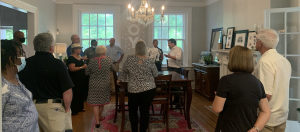
Discussion in Waverly, Virginia (population 2,633) with the Democratic Mayor of Waverly and the Republican Chair of Sussex County (population 11,159)
I think Virginia needs an accessible Lieutenant Governor to put forward your best ideas to both its Executive and its Legislative branches. We need to increase the salary of the Lieutenant Governor (beginning after my term) so that future Lieutenant Governors can do the job the same way in the future. I realize this is an ambitious goal. I aim for nothing less than to transform the very concept of what the role of the Virginia Lieutenant Governor is.

Janet and me as young kids
I was born in Nashville, Tennessee. My parents had two kids, my sister Janet and me. I adored my sister. Janet taught her nerdy little brother (me) how to dress and how to dance. She introduced me to the musical artists of our day. She grew up, got married, had two children, and became a talented artist. To this day, I miss her terribly. I’ve dedicated a life of public service to Janet’s loving memory.
On August 15, 1996, Janet was murdered by her husband. She was only 33 years old. She left behind two very young children, then aged 6 and 2.
Their father (the killer) took my niece and nephew away from my parents and me and ran to escape the law to Mexico. I’ll never forget the feeling of helplessness I felt as I watched those two young children crying and torn away from their grandma’s arms. Being a lawyer, I represented my parents in a lawsuit to try to bring their grandchildren home. But a Tennessee court ruled that domestic violence could not be a factor in the termination of parental rights because it was not “child abuse.”
The first bill I ever wrote was to change that Tennessee law. I wrote a new one and lobbied both Democrats and Republicans in the Tennessee State Legislature to pass it. I argued: “if you beat your wife or husband, you’re not a good parent.” The bill passed unanimously. I didn’t think it would help my family because, I thought, our situation was beyond the reach of the law. But I didn’t want others to suffer as we had.
Nine years later, my former brother-in-law was expelled from Mexico, and the law I wrote served to reunite my own family. It has now helped hundreds of children escape abusive parents. A year later, my sister’s killer was convicted of murder and received a 56-year prison sentence. After years of separation, Janet’s children were raised by my parents. They now lead happy, productive lives.
I was determined to pass a similar law in Virginia. From 2016 to 2020, I introduced and reintroduced a similar bill until after five tries, it finally became law here. We called it “Tyler’s Law” after a young man abused by his father in Abingdon, Virginia. I also passed a law to keep rape kits from inadvertent destruction. I’ve increased the Virginia budget for Child Advocacy Centers to help children who are abused or come from abusive homes, and I’ve worked with local domestic and sexual violence groups to increase funding for shelters and to encourage survivors to share their stories with Take Back the Night. I serve on the Virginia Advisory Committee on Sexual and Domestic Violence and did so for years (on my own dime) until I was finally appointed to the Committee when Democrats took over the House.
Perhaps my proudest work was obtaining a Federal Grant to bring 24/7 Sexual Assault Nurse Examiners to Northern Virginia, so that survivors of sexual assault can be seen immediately at any hour on any day and have their medical, psychological, traumatic, and forensic needs met under the highest and most compassionate care.
I’ve also put forward bills to prohibit perpetrators of domestic violence from obtaining firearms and to ease the judicial burdens on victims presenting their case.
Once reluctant to discuss the issue, I now speak out often to diminish the stigma for survivors. Here I am at the World Bank giving a keynote address on the topic.
For the last quarter century and for as long as I live, I will continue to speak out on behalf of survivors of abuse. As Lieutenant Governor, I will share my story and support and encourage other survivors to share theirs.
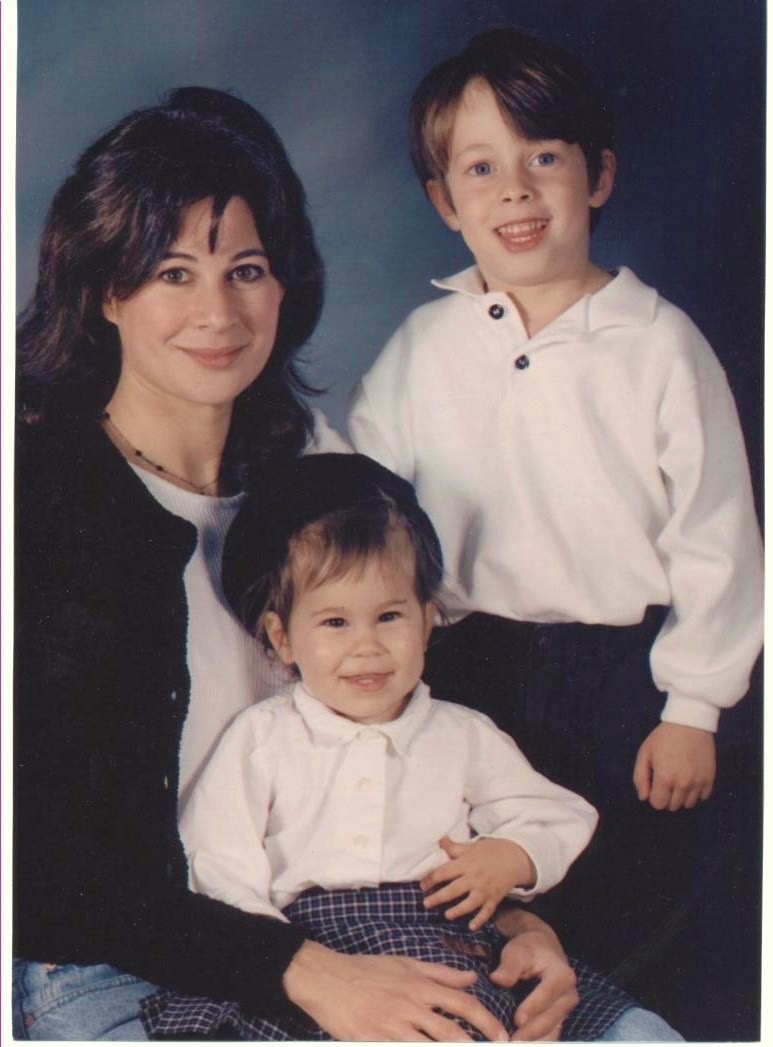
Janet with her children a few months before she was murdered.

My happy family and me today. From left are my nephew, niece, father, mother, and me.
Economic justice is a defining issue of our time. There was a time when one family wage-earner could easily take care of an entire family. Now two-wage households often struggle to get by while single parents slip into poverty. It doesn’t have to be this way.
Virginia is consistently rated as one of the best states for businesses while being one of the worst states for workers. We can be both. Paying workers a livable wage reduces the tax burden. A strong middle class leads to explosive economic growth, which feeds back into business profits. Although I have one, you don’t need a degree in macroeconomics from Harvard to understand this. It’s the story of the American Dream.
Capitalism presupposes that everyone begins at the same starting point and then rises as fall as their talents allow. But anyone with their eyes open recognizes that systemic economic inequality pervades our society. You can’t run a fair race when some folks begin miles behind the starting gate. It’s time to give every Virginian an equal opportunity to live the American Dream.
The solution in many cases is unions. Union jobs pay better and provide better training and better working conditions. They have long been the ticket from poverty to the middle class. I will always defend the right of workers to organize for better pay and working conditions. And their apprenticeship and training programs are second to none.
As Delegate, I’ve championed efforts to:
- Raise the minimum wage to $15/hour for all workers (including tipped workers, farm workers, domestic workers, and those with disabilities)
- Allow localities to raise their minimum wage above the statewide minimum
- Require equal pay for equal work
- Allow all employees to unionize and collectively bargain
- Repeal Virginia’s right to poverty laws (that employers call “right to work” because they can use them to make employees work under intolerable conditions without the benefit of having a union protect their rights).
- Give all Virginians access to Paid Family and Medical Leave. (I was the first Virginia legislator to propose paid family and medical leave.)
- Promote paid sick leave for all
- Crack down on predatory lending
- Promote a liveable retirement
- Help those being evicted know their legal rights and have access to programs to keep them froing going homeless
- End employment discrimination on the basis of race, gender, sexual orientation, gender identity, ethnicity, disability, and veteran status.
We need to make sure that all Virginians have access to high quality and affordable or no-cost:
- healthcare;
- child care;
- housing;
- and education.
As Lieutenant Governor, I will do more than just vote the right way. I will always use my platform to stand in solidarity with workers. Whether it’s “Organizing DASH Bus Drivers”, insisting Amazon give local workers a fair deal, helping Alexandria public employees get meaningful collective-bargaining rights, or insisting Virginia Tech pay prevailing wages, I’ve been there locally to insist workers are fairly treated. I commit to doing the same statewide. No one working full time should have to live in poverty.
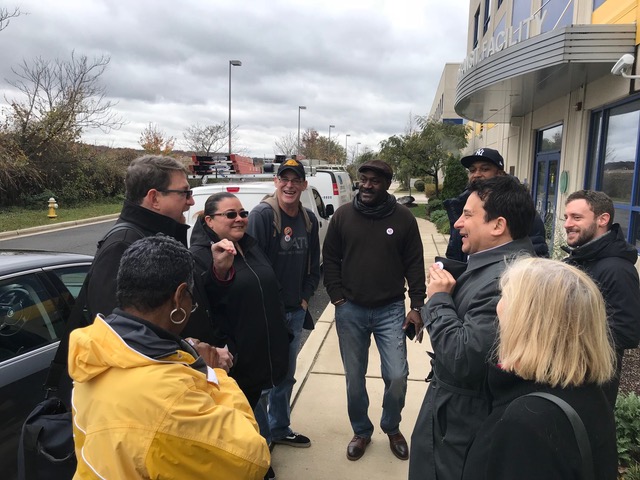
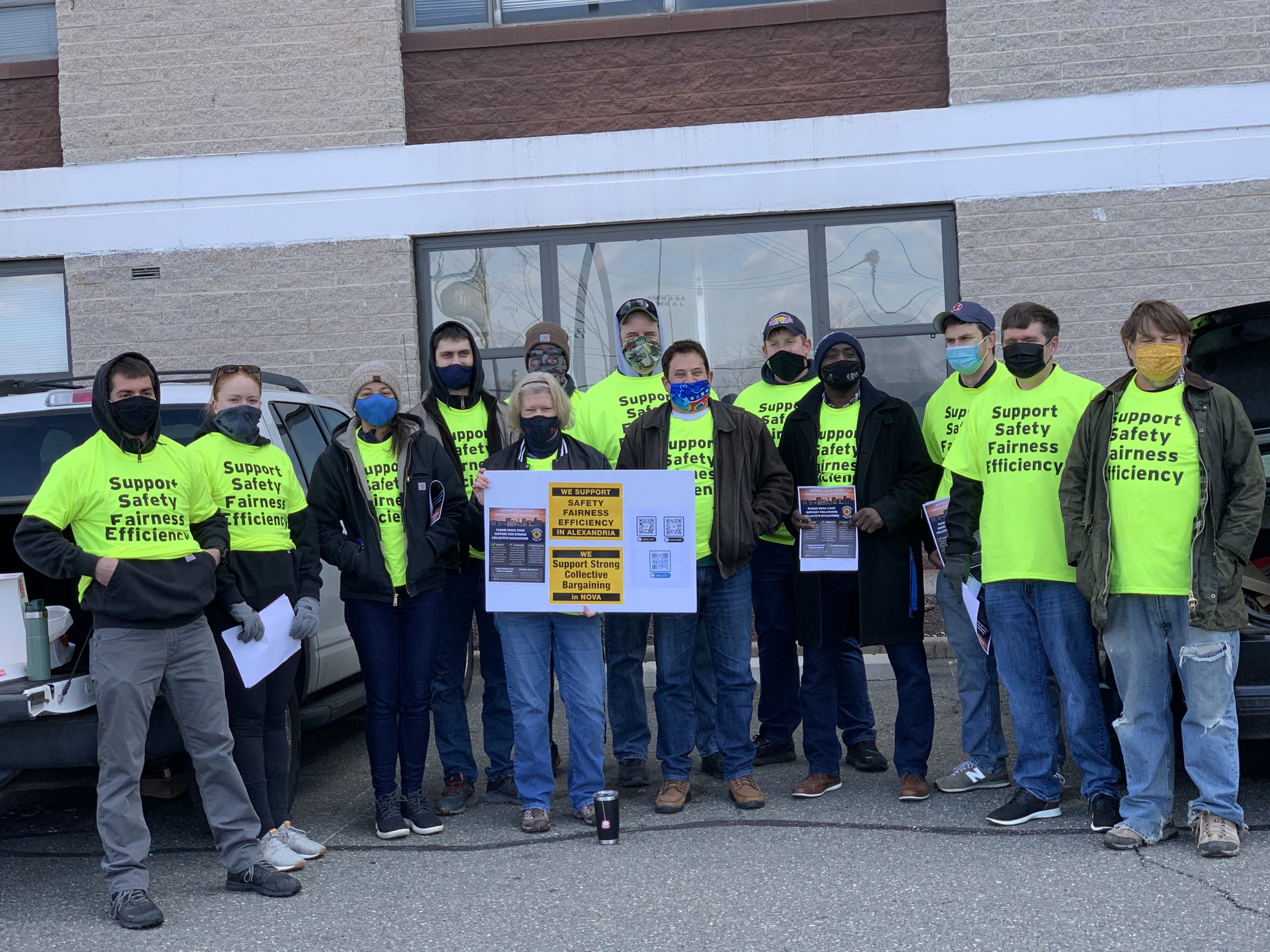
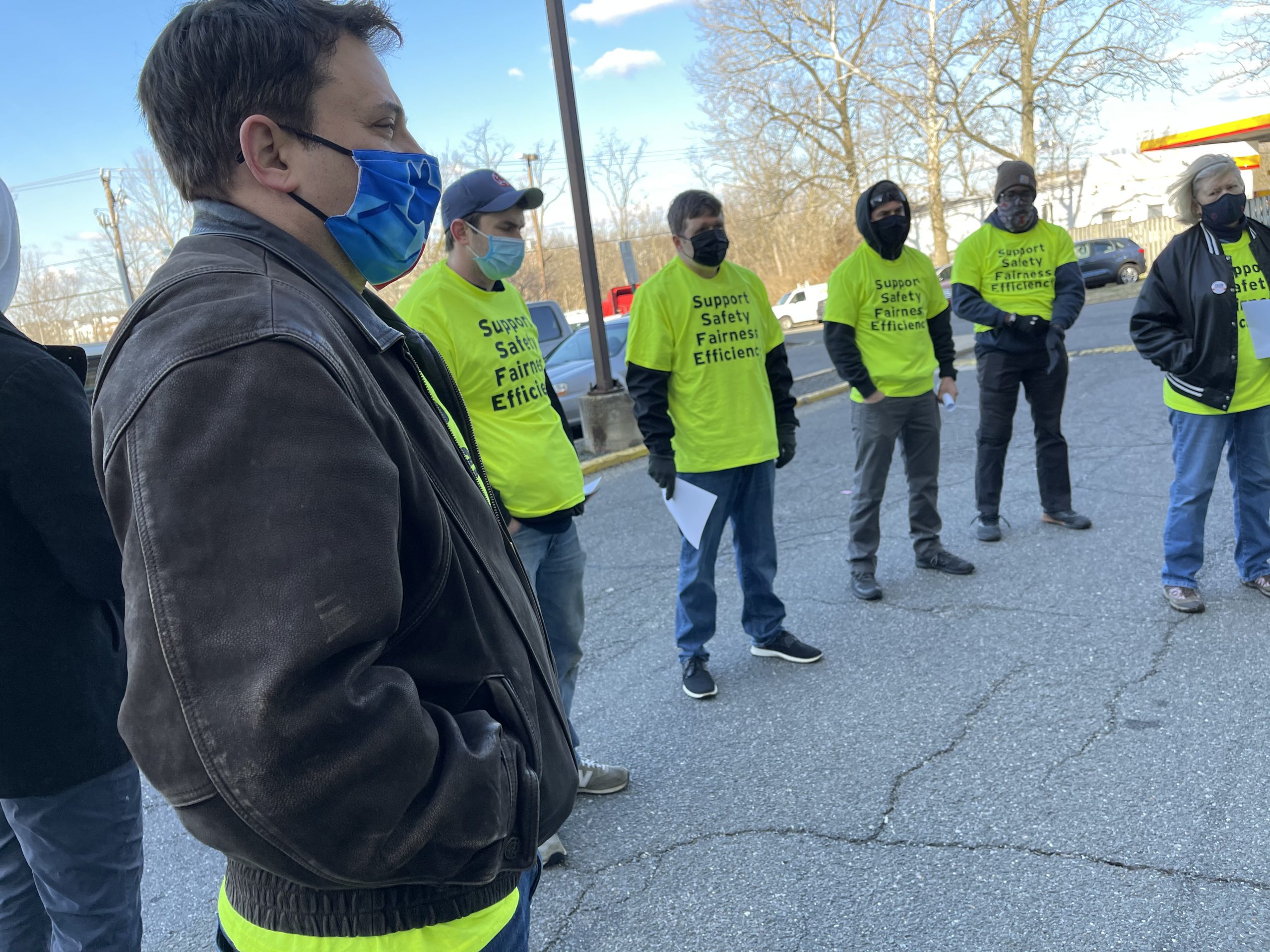
Mark helping organize union workers in Alexandria
Mass shootings used to be uncommon. It used to happen once a decade, and it was shocking. Then it started happening year after year. Then month after month. Then every week. In 2021, on average, a mass shooting has happened in America every single day. It doesn’t even get headlines anymore unless the body count is particularly high. More die from guns than from car accidents every year, and every year the toll goes higher.
Theaters and grocery scores. Elementary schools and night clubs. Post offices and spas. No one is safe anywhere.
It has to have to stop.
It doesn’t have to be this way.
We in America – and in Virginia – make a choice. We can either have laws that increase gun violence, or we can have laws that reduce gun violence. Republicans support laws that increase gun violence and increase the number of innocent people dead and maimed for life. I support laws that reduce them.
I realize these are harsh words. They are harsh words that no one wants to hear. Republicans are so upset that I would say this obvious truth that one year they threatened to kill all my bills unless I shut up.
But when people are dying, how can we be quiet? I can’t.
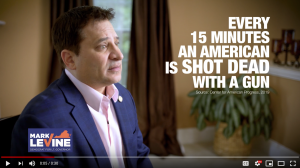 Too many Democrats don’t like to talk about gun violence either. It’s ugly. It’s tragic. People plucked from life, not because of disease or accident, but because too many politicians are more beholden to the gun lobby than to saving lives.
Too many Democrats don’t like to talk about gun violence either. It’s ugly. It’s tragic. People plucked from life, not because of disease or accident, but because too many politicians are more beholden to the gun lobby than to saving lives.
Last year, the Governor proposed commonsense gun measures, many of which I had introduced in the past. We passed many of them:
- Universal Background checks
- Gun violence protective orders (“red-flag laws”)
- Allowing localities to regulate guns;
- Protections for children
- Limiting sales to one gun a month
- Mandate the reporting of lost or stolen guns;
- Banning guns to those subject to a domestic violence protective order.
These are strong common-sense gun measures, and I led the way. I copatroned every one of these bills. Most of them contained elements of bills I had introduced in the past that had been defeated by a Republican majority.
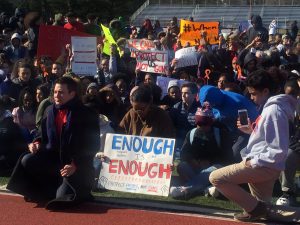
My legislation would have gone farther. In addition to background checks and banning guns at protests, I’ve introduced bills to:
- Ban known terrorists from owning guns
- Ban online sale of guns
- Ban armor-piercing (“cop-killer”) bullets
- Ban bump stocks (which allow a semiautomatic weapon from acting more like an automatic weapon)
- Ban guns at protests;
- Prohibit people who have severe mental illness from possessing firearms. (This is as much for suicide prevention as it is to prevent harm to others. Some 60% of gun deaths are suicides, and gun suicides are far more likely to be fatal.)
You know how I feel about domestic violence. This year I was chief copatron of a bill that banned certain perpetrators convicted of certain domestic violence from possession of a gun for three years. Good as far as it goes, but it was watered down significantly in the Senate. I would have banned guns to all convicted perpetrators of domestic violence or sexual violence.
The most controversial bill was a personal request by the Governor. It was a bill no one else was willing to carry. I could have taken an “easier” bill to pass, but I didn’t back down when asked. I proposed to ban new sales of military-style assault weapons, the weapon of choice for mass murderers, along with bump stocks (that convert semiautomatic weapons into the functional equivalent of machine guns) and high-capacity magazines (that allow mass murderers to shoot dozens of people without reloading).
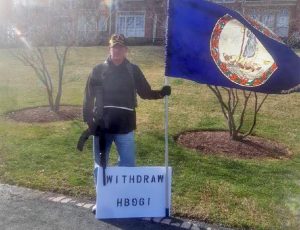
Gunman protesting outside my home with an assault weapon
The pushback was fierce. I got dozens of death threats. My social media pages drowned in angry and vicious rhetoric, with thousands of people all over the world sent by the NRA to harass me. A gunman with an assault weapon said online I should go to family members and “kiss them goodbye” and then protested outside my home with enough firepower to blow a hole in one wall of my house and out the other.
But I didn’t back down. How could I? I talked to colleagues and we pushed the bill through the House of Delegates. Two Democratic Senators, including my own Senator, got nervous and withdrew the bill. So it failed in the Senate.
But I’m coming back. We cannot run from this fight in the face of intimidation. The deaths of innocents call out from their graves and demand we reduce gun violence once and for all.
This year, half of all firearms laws passed by the General Assembly were written by me.
My bill to ban guns at polling places and vote counting centers passed and became law. Now you can safely vote without intimidation.
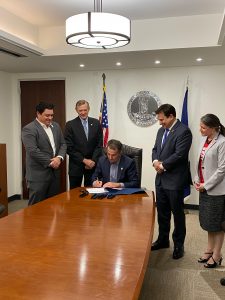
Governor Northam signing my Safe Polls Law and Safe Capitol Law
Another law I introduced that was passed in 2021, bans firearms and explosives at our State Capitol, in Capitol Square, and in all state buildings and offices throughout Virginia.
As Lieutenant Governor, I would go further and take measures to:
- Require all gun owners to have a gun license that requires proper training, including a mental health and substance abuse check.
- Stop the black-market of unregistered guns.
- Ban high-capacity magazines. No one needs a 100-bullet drum to shoot a deer
- Keep military weapons, assault weapons, and other weapons of war out of our streets
I’ve always been a Straight-A student. The only F I ever got was from the NRA. And I’m proud of it.
We must always put innocent peoples’ lives ahead of the gun lobby and gun manufacturers.
Virginia was the birthplace of American racism. It was here the first Africans were taken from slave ships on to our shores. It was Virginia law that first formalized America’s slavery system and based it squarely on race. Richmond was the capital of the Confederacy of Slave States. If systemic racism seems impossible to root out in Virginia of all places, it is almost certainly because it had four centuries to deeply root in.
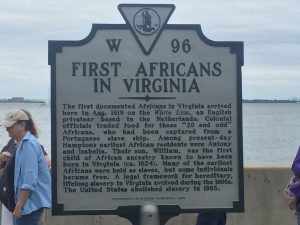 Acknowledging this grim truth too often leads to hopelessness and despair. No, we won’t end racism in a day, a week, a month, or a year. But uprooting it requires we dig deep into the soil of our past and our present to find all the hidden root branches whether they involve job opportunities, education, housing, or criminal justice reform.
Acknowledging this grim truth too often leads to hopelessness and despair. No, we won’t end racism in a day, a week, a month, or a year. But uprooting it requires we dig deep into the soil of our past and our present to find all the hidden root branches whether they involve job opportunities, education, housing, or criminal justice reform.
We have to look at the way we teach history as well as deeply-ingrained social attitudes. We have to recognize that programs that are ostensibly non-racist (e.g., the disparity in how we treated the crack and opioid epidemics, qualified immunity) in fact have racist origins and continue to serve racist purposes. That’s why laws must be re-examined with a racial lens.
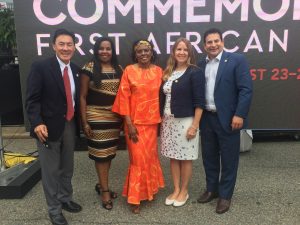 Many of the laws I’ve championed are not specifically race-based but have the effect of decreasing systemic racism, like:
Many of the laws I’ve championed are not specifically race-based but have the effect of decreasing systemic racism, like:
- my police body-camera law (the only one Virginia has)
- my Good Apples bill (requiring law enforcement to report bias-based profiling or wrongdoing by their fellow officers and to render life-saving aid)
- my law requiring all new Virginia teachers to undergo conflict de-escalation training, reducing seclusion, restraint, and the school-to-prison pipeline
- many of my gun bills restricting the ability of dangerous people to obtain dangerous firearms
- Fighting back against the War on Drugs (see Police Reform, Criminal Justice Reform, and Drug Policy)
- my law replacing a voter-ID requirement with utility bills or signed statements under perjury
- my law to expunge drug crimes
- my law requiring voter-verified paper ballots
- my prison gerrymandering law
- my bill to get rid of the electoral college
Some of the laws I’ve championed do specifically seek to undo Virginia’s Jim Crow past, such as:
- my law to end the use of race on marriage certificates
- my law to replace Virginia’s statue of Robert E. Lee at the US Capitol with one of Barbara Johns, the Black Virginia teenager whose walkout in protest of her unequal segregated education led eventually to Brown v. Board of Education
Perhaps the most famous of those is my successful effort despite the then-Republican-controlled Virginia Legislature to rename Jefferson Davis Highway in Arlington as Richmond Highway. I was counseled by the Arlington County Board, the other six delegates and senators of the Arlington delegation, and the Attorney General (in an old informal opinion) that this just couldn’t be done. But I did some legal research and persuaded the Attorney General to issue a new opinion based upon it. The rest is history.
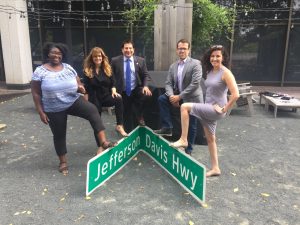 We have made much progress over the past two years, but we have a lot more work to do to eradicate the vestiges of slavery, Jim Crow, and Massive Resistance in Virginia’s institutions.
We have made much progress over the past two years, but we have a lot more work to do to eradicate the vestiges of slavery, Jim Crow, and Massive Resistance in Virginia’s institutions.
Virginia has never had an openly LGBTQ+ (Rainbow) statewide elected official. And in all of American history, no state has ever had an openly gay Lieutenant Governor. I would be the first–the first Rainbow Lieutenant Governor in any of the 50 states.
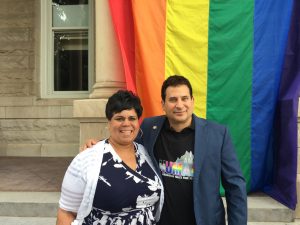 When I came out of the closet more than thirty years ago, I thought I had to give up any hope of a political career. After all, it was illegal at that time just to have a gay relationship in Virginia and most other states. No same-sex couple could get married anywhere in the world.
When I came out of the closet more than thirty years ago, I thought I had to give up any hope of a political career. After all, it was illegal at that time just to have a gay relationship in Virginia and most other states. No same-sex couple could get married anywhere in the world.
So I set about to change that. In the 1990’s, I led protests against Hollywood (pre-Will and Grace) to demand positive portrayals of the Rainbow community on television. I went on to lead a fledgling marriage equality movement in California at a time when even gay leaders considered marriage equality impossible. We organized some of the nation’s first civil disobedience mass-marriage protests. I crafted the first bill ever introduced in a state legislature to legalize same-sex unions.
In 2001, I moved to Alexandria, Virginia and continued the fight as Legislative Counsel to one of the only openly-gay Members of Congress at the time, Congressman Barney Frank. There, I fought so that Rainbow immigrants could receive asylum and pushed the Bush administration to allow same-sex partners of the victims of 9/11 to receive the same benefits following the attacks. I worked on ENDA and hate-crime laws and played a key role persuading Senator Hillary Clinton to defeat a Bush initiative to provide federal funding to religious charities that discriminated against the Rainbow community.
Ten years later, I worked with Councilman Phil Mendelson to write the District of Columbia’s marriage law, and I defended it in court against those that would put our civil rights up to a referendum vote.
And in Virginia, I’ve continued to lead this fight:
- After five years of trying, I passed the single most comprehensive LGBTQ+ equality bill in Virginia history, adding protections against discrimination on the basis of sexual orientation and gender identity to more than 60 different areas of the Virginia code. Virginians are now protected from discrimination in housing, employment, public accommodations, banking, insurance, apprenticeships, contracts, credit, and too many other areas of the law to mention.
- I crafted the Virginia Values Act and fought back against the bill patron who wanted to keep domestic workers and other employees of small employers outside of the bill’s protections.
I chief copatroned laws to
- Ban conversion therapy
- Protect healthcare access for trans Virginians
- Ban the “gay panic” defense
- Create Virginia’s first LGBTQ+ Advisory Council
But we can’t settle for anything less than full equality and acceptance. That’s why I am still fighting to:
- Add “sexual orientation” and “gender identity” to the definition of police bias
- Ban LGBTQ+ discrimination by state-funded adoption and foster-care agencies

Celebrating at the US Supreme Court the day it declared the ban on same-sex marriage unconstitutional
Allowing Rainbow representatives at the upper echelons of power is still new in America. It took until this year, 2021, for the nation to see its first openly gay Cabinet official.
But it’s not enough to out of the closet. I’m proud to have played a major role over three decades in leading the way for all Rainbow Americans to be free to serve our country without giving up our freedom to be who we are or to love the person of our choice.
I’m proud to have my candidacy for Lieutenant Governor be endorsed by the Victory Fund and to be their Game-Changer Candidate of the Year.
Health care is a right. Not a privilege.
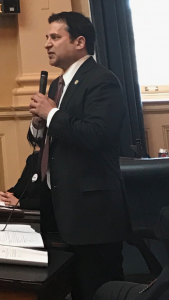 I have long supported universal health care, Medicare for All and mental-health parity.
I have long supported universal health care, Medicare for All and mental-health parity.
As a member of the Health, Welfare, and Institutions Committee, I’ve lead efforts to:
- expand Medicaid to more than 400,000 Virginians,
- prohibit “surprise billing” for out-of-network care,
- allow the state to negotiate down the cost of healthcare,
- expand transparency in drug pricing
- cap the price of insulin
I would go farther. I have introduced legislation to require doctors and hospitals to divulge the full patient-borne cost of procedures long before the procedures take place in order to allow patients to find the best price. With two-thirds of US bankruptcies related to health care, we deserve nothing less.
We also need paid family medical leave – a bill I was the first Virginia legislator to champion – paid sick leave, and better pay for home health-care workers, so that people are able to care for their families.
The pandemic has laid bare the continued inadequacies of our health-care system. Other nations – and even some other states – take care of patients without regard to their ability to pay. This has to be our ultimate goal.
Reproductive healthcare is health care, and access to health care is a fundamental human right. Every person deserves freedom over their body and their reproductive decisions. I am proud to have earned a 100% A rating from NARAL Pro-Choice Virginia every year they’ve graded me on their legislative scorecards.
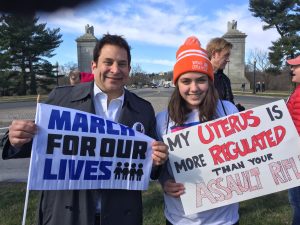 Reproductive freedom is imperative to achieving economic justice, racial justice, and gender justice. That’s why, as a member of the Health, Welfare, and Institutions Committee, I have helped lead the charge to:
Reproductive freedom is imperative to achieving economic justice, racial justice, and gender justice. That’s why, as a member of the Health, Welfare, and Institutions Committee, I have helped lead the charge to:
- Remove medically-unnecessarily obstacles to receiving reproductive healthcare and abortions, such as ultrasounds, 24-hour delay, counseling on alternatives, and unnecessary regulation of abortion clinics as hospitals.
- Expand access to contraception
- Allow abortion to be covered in state health insurance.
- Prohibit workplace discrimination against employees who are pregnant or trying to become pregnant
- Remove parental consent & notification laws when minors seek abortion.
- Create the Fetal and Infant Mortality Review Team to improve health outcomes for pregnant Virginians and their children.
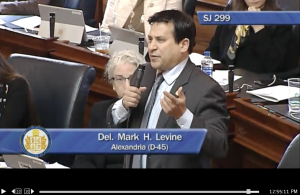
In this video, I challenge a Republican delegate’s anti-abortion resolution, asking her how a baby can be both born and unborn at the same time.
Reproductive freedom is about more than just abortion. We need to support Virginians before, during, and after pregnancy. That’s why I have championed paid family medical leave and affordable childcare for all and strongly support expanding comprehensive insurance coverage for the full spectrum of reproductive health services, including family planning, abortion care, prenatal and postpartum care, and routine cancer screenings for all Virginians.

Mark removing trash from the Potomac River in Alexandria.
The science is clear: Climate change is real, and we must act now. Norfolk, Virginia is seriously threatened by rising flood waters: it’s the second-most seriously threatened city in the USA, after New Orleans.
And it’s not just our coasts. We had three so-called “100-year floods” in my hometown of Alexandria just last year. The chances of this happening randomly, rather than as a result of climate change, is literally one in a million. That’s why I championed the creation of a comprehensive and coordinated planning effort to address recurrent flooding in inland and urban areas throughout Virginia.
I have also been proud to help pass legislation:
- Putting Virginia on the path to reach zero carbon emissions by 2045 (the Virginia Clean Economy Act) and retiring coal facilities
- Establishing a carbon cap and trade program to comply with the Regional Greenhouse Gas Initiative
- Removing barriers to community and customer-owned solar energy in Virginia, so folks can “sell energy back to the grid”
- Banning single-use styrofoam food containers, and allowing localities to impose 5-cent fees on plastic bags
- Banning offshore drilling and fracking east of I-95
- Requiring annual Hazardous Waste Site Inventory
- Adopting aggressive new Clean Car Standards and promoting local transit-oriented development
- Creating commissions focused on environmental justice, farming infrastructure, and eliminating plastic waste.
Fighting climate change is an international task, but there are further concrete steps we can do here in Virginia. We need to stop investing in new fossil-fuel infrastructure and stop the construction of any new pipelines. But it’s not enough to claim a “Green New Deal.” The devil is in the details, and we must get those details right. We can transition to a green economy while protecting rate payers, increasing jobs, and leaving no one behind.
In Virginia, our elected officials need to be serving the people, not big interests. That’s why I’ve never taken a dime from Dominion Energy or Appalachian Power.
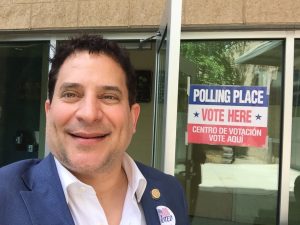 I serve on the Privileges & Elections Committee, and I was chosen to chair the Constitutional Amendments Subcommittee because of my long-standing concern for fair elections and protecting the right to vote.
I serve on the Privileges & Elections Committee, and I was chosen to chair the Constitutional Amendments Subcommittee because of my long-standing concern for fair elections and protecting the right to vote.
I believe in one person, one vote. I’ve been a tireless advocate of passing the popular vote. All voters should be valued equally in presidential elections, no matter where they live. Currently, our system values voters unequally because of our antiquated “winner take all” system. My End the Electoral College Law passed the House but hasn’t passed the Senate…yet.
Voting should be easy. Republicans have continuously pushed for laws to disenfranchise people of color, younger folks, and folks less well off.
I’ve written and passed a large number of Virginia laws in this area:
- to repeal unnecessary voter IDs when a signed statement or utility bill would suffice
- to require voter-verifiable paper ballots so people trust the system, counts, and recounts
- to set up automatic voter registration
- to reform how we settle both tied and disputed elections
- to end political-based and prison gerrymandering and
- to ban guns at polling places and counting centers so as to protect voters and election workers from intimidation.
I’ve also supported these laws:
- early voting
- no-excuse absentee voting
- funding for dropboxes
- pre-paid postage and ending witness requirement for absentee ballots
- Election Day holiday
- Virginia Voting Rights Act
- Ranked-choice voting
But there’s more to do. We can start by fixing Virginia’s broken campaign finance system:
In 2019, an out-of-state Republican donated $500,000 to Nick Freitas’s re-election campaign. And it was legal! I’ve fought to reform Virginia’s inadequate campaign laws by tying Virginia’s campaign contribution limit to the federal limit (currently $2,800 per election cycle). I would also ban corporate contributions and donations for personal use. And I would seek to overturn Citizens United. My ultimate goal is public financing of campaigns.
I am the Chair of the Public Safety Subcommittee, which oversees Virginia’s law enforcement, jails, and prisons. After the murder of George Floyd, the nation has taken an intense interest in police reform. I also serve on the Courts of Justice Committee. I’m proud to have led the way to transformative change.
But these issues are not new to me. When I was first elected six years ago, I championed police body cameras. Requiring Virginia law enforcement to wear body cameras assists in gathering evidence, protecting the public interest, and ensuring the safety of citizens. My body-camera law, endorsed by the NAACP, the Fraternal Order of Police, and the Sheriff’s Association, is the only body-camera legislation on the books in Virginia, and it’s just a start. Filming law enforcement-citizen interactions leads to justice, no matter who was in the wrong.
Drug Policy
I am also proud to be a leader in the effort to replace our systemically-racist drug laws with an evidence-based, public health-oriented approach to drug policy. In Virginia, Black people were more than three times likely to be arrested on marijuana-related charges than their White counterparts. That is unacceptable. Whether it’s opiods or crack, we will never criminalize our way out of a public health issue. The War on Drugs has been a colossal failure. Addiction is a disease, not a crime. We need treatment centers, not jails.
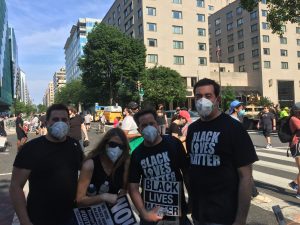 That’s why I’ve fought for legislation to make it easier for folks to report overdoses without fear of criminal prosecution and to allow emergency response workers to administer life-saving anti-overdose medicine. I’ve also long championed ending criminal penalties for drug possession and expunging these records so folks could get jobs. I’ve long supported decriminalizing and legalizing marijuana with regulations to restrict public smoking that irritates others and driving while high.
That’s why I’ve fought for legislation to make it easier for folks to report overdoses without fear of criminal prosecution and to allow emergency response workers to administer life-saving anti-overdose medicine. I’ve also long championed ending criminal penalties for drug possession and expunging these records so folks could get jobs. I’ve long supported decriminalizing and legalizing marijuana with regulations to restrict public smoking that irritates others and driving while high.
Police Reform
We’ve had such progress in this area that there’s no room to lay it all out here. But if you want to know what I will support in the future, you should know my record in the past. Here are the highlights of efforts I’ve supported:
- Virginia’s transparent body-worn-camera law based on model guidelines (my bill)
- Making life-endangering use of force a last resort
- Requiring an officer intervene to stop an illegal use of force by another officer
- Demilitarizing police
- Prohibiting no-knock warrants.
- Prohibiting most bias-based profiling and collecting data on them.
- Eliminating certain pretextual police stops
- Establishing Citizen Review Panels
- Standardizing and enhancing training
- Strengthening the vetting required before hiring law enforcement officers and the ability to decertify renegade law enforcement officers
Criminal Justice Reform
Here are highlights of efforts I’ve supported in this area:
- Abolished the death penalty
- Legalized marijuana for adult-use
- Stopped suspending drivers’ licenses for unpaid fines
- Limited school-to-prison pipeline
- Increased the felony larceny threshold
- Reduced solitary confinement
- Repealed law against fornication (my bill)
- Allowed courts to consider evidence of a defendant’s mental illness, autism spectrum disorder, or intellectual/developmental disability in criminal sentencing
- Stopped punishing drug users who save other drug users from an overdose.
- Strengthened prosecutorial ability to dismiss charges.
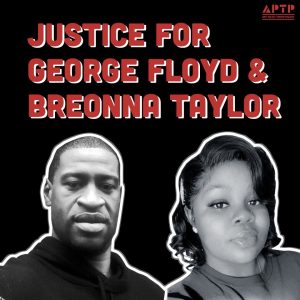 I will also continue to push hard for my Good Apples Bill, which has passed out of the House of Delegates twice now but been stymied by the Senate Judiciary Committee to sessions. This legislation: (1) requires law enforcement to report acts of serious wrongdoing they witness being conducted by their fellow officers on duty; (2) requires police on duty to aid people suffering from life-threatening conditions; and (3) bans profiling on the basis of perceived sexual orientation and gender identity. Half of all transgender Virginians report being harassed by police just last year. Transgender people of color were six times more likely to experience physical violence from the police compared to White non-transgender survivors and victims.
I will also continue to push hard for my Good Apples Bill, which has passed out of the House of Delegates twice now but been stymied by the Senate Judiciary Committee to sessions. This legislation: (1) requires law enforcement to report acts of serious wrongdoing they witness being conducted by their fellow officers on duty; (2) requires police on duty to aid people suffering from life-threatening conditions; and (3) bans profiling on the basis of perceived sexual orientation and gender identity. Half of all transgender Virginians report being harassed by police just last year. Transgender people of color were six times more likely to experience physical violence from the police compared to White non-transgender survivors and victims.
Law enforcement must treat everyone equally under the law. The best way to stop misconduct by law enforcement is to create a culture of good policing. That’s why so many law enforcement officers, along with community leaders, have championed my efforts here.
As the son of a first-grade public school teacher, I know that universal Pre-K is the foundation for all education. I also know Virginia ranks near the bottom in teacher pay. We must pay teachers at least the national average, if not more.
Schools also need child psychologists, mental health counselors, and substance-abuse experts. Furthermore, our schools are crumbling, with physical infrastructure needs that are decades old. We need to help localities maintain our schools and provide funding and low-interest loans to help them build new ones, especially where communities are growing rapidly.
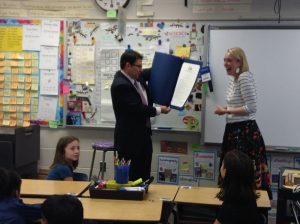
Honoring Arlington’s 2016 Teacher of the Year Jennifer Burgin
We need to increase “at-risk” funding for school systems with large numbers of children from struggling families or from families where English is a second language.
I support reforming Standards of Learning tests to emphasize critical thinking instead of teaching to the test. And I think college must be made more affordable by incentivizing institutions of higher education to stop runaway tuition increases and by fully funding community college so that no one is stopped from getting an education due to affordability.
I was also an early supporter of expanding broadband internet access in rural Virginia. I believe it must be treated as a public utility and accessible to everyone like electricity or plumbing. I supported it from my very first term, when there was tremendous pushback from the majority Republicans. Click here for the details. We’ve come a long way since then and put millions more into internet broadband, but we still have a ways to go until every Virginian has adequate access
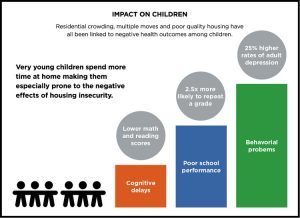
I’ve long supported improving public transit, both by providing dedicated funding to the Metro in Northern Virginia and by improving our railways. I love working on trains as I travel down to Richmond because I can get work done using Wi-Fi without the frustration of sitting in traffic. But the majority of time the trains are significantly late, and all-too-often, they arrive hours after schedule!

The infamous “Mixing Bowl” in Northern Virginia
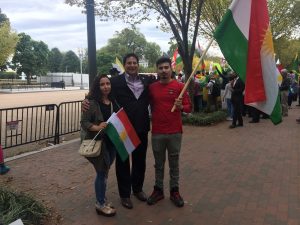 More than one million immigrants live in Virginia, and all of us are better off for it. From protests to votes on the House Floor, I have consistently stood with our immigrant community. As Lieutenant Governor, I will continue to be an outspoken advocate for our immigrant and refugee community and work with our federal officials to create a humane immigration system that recognizes the dignity of all people.
More than one million immigrants live in Virginia, and all of us are better off for it. From protests to votes on the House Floor, I have consistently stood with our immigrant community. As Lieutenant Governor, I will continue to be an outspoken advocate for our immigrant and refugee community and work with our federal officials to create a humane immigration system that recognizes the dignity of all people.
As Delegate, I introduced and passed successful legislation to repeal the requirement that local police report non-dangerous immigrants to ICE. I’ve also copatroned bills to provide qualifying undocumented immigrants and refugees drivers’ privilege and identity cards and in-state tuition.
In my own district, I have reached out to immigrant communities with translators to make sure their needs are met and worked to require that emergency and planning materials are provided in the native languages of our immigrant communities. This was especially important during the pandemic, where I made sure our immigrant communities received the testing and vaccines and resources they needed to survive.
Caring for Virginians with disabilities and those with special needs is part of universal health care. We’ve expanded waivers for intellectual and developmental disabilities, but our work is far from done. Virginia should be accessible for all.
We need to give our teachers, students, and schools the resources they need to ensure that every Virginian has a positive experience in the classroom. I worked with disability advocates to draft my law which requires all incoming public school teachers to have training in best practices for conflict prevention and de-escalation so that schools will be able to avoid restraint and seclusion wherever possible.
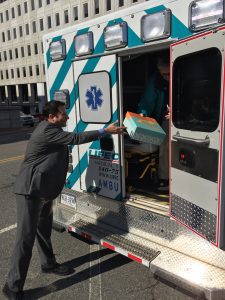 We should mainstream Virginians with disabilities as much as possible whether in school or in the job force. But even when folks do not have the capacity to be mainstreamed, we must take steps to avoid isolation. I’ve proposed legislation to reform our guardianship system to minimize the forced isolation of people who’ve been deemed incapable of making their own decisions. It’s a complex matter, and I chief copatroned a bill to send it to formal experts for study. But the incredible power of a guardian, in my view, requires extensive oversight to avoid abuse.
We should mainstream Virginians with disabilities as much as possible whether in school or in the job force. But even when folks do not have the capacity to be mainstreamed, we must take steps to avoid isolation. I’ve proposed legislation to reform our guardianship system to minimize the forced isolation of people who’ve been deemed incapable of making their own decisions. It’s a complex matter, and I chief copatroned a bill to send it to formal experts for study. But the incredible power of a guardian, in my view, requires extensive oversight to avoid abuse.
I’ve been a proud long-time partner with the ARC of Northern Virginia. I’ve also worked with the Alzheimer’s Association and various groups seeking guardianship reform.
You shouldn’t have to be a lobbyist to participate in the legislative process and follow what your elected officials do every day.
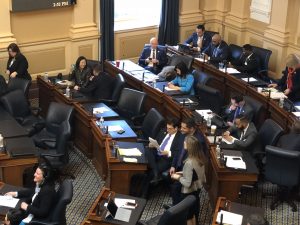 When I was first elected in 2015, the only way to find out what was happening in our committees and subcommittees was to travel to Richmond and see it with your own eyes. For centuries in Virginia, bills were killed without recorded votes and amended without public debate. And oftentimes, the only ones able to witness it all were the lobbyists. It was very difficult to hold your Delegate or Senator accountable, and many people wanted it that way.
When I was first elected in 2015, the only way to find out what was happening in our committees and subcommittees was to travel to Richmond and see it with your own eyes. For centuries in Virginia, bills were killed without recorded votes and amended without public debate. And oftentimes, the only ones able to witness it all were the lobbyists. It was very difficult to hold your Delegate or Senator accountable, and many people wanted it that way.
I founded the bipartisan House/Senate Virginia Transparency Caucus my second day in office to demand we livestream and archive every subcommittee, committee, and floor proceeding. When I did so, there was great resistance in both parties. I was told “Mark, who do you think you are? Things don’t work that way.” Nevertheless, I accepted the challenge.
It took tremendous effort. Since we couldn’t win through legislation, I found another way: I spoke personally to all 140 members of both chambers, asking each of them sign a petition for transparency. When we got a majority in both chambers, I gave that petition to the press. Members began to realize that their constituents did not want government done in secret. Eventually we would get 2/3 of members in both chambers, and even the Republicans then in charge had to cave in and give us transparency.
Now I’m proud to say all hearings are live-streamed and archived. All votes are recorded. Virginians can even testify electronically!
I’ve moved on to promoting transparency in other areas of government, and I was disappointed when my bipartisan bill to require transparency in the redistricting process failed in the Senate after passing the House. But I will continue this fight as Lieutenant Governor.
I love my four-legged constituents.
In 2020, I introduced and had passed into law a bipartisan bill to prohibit anyone from tying up a dog outdoors during extreme temperatures and severe weather. My law also increased the minimum required length of the line used to tether the dog.
I’ve also worked on legislation to ban puppy mills, to stop abusive animal testing, to allow vaccination in animal shelters, and to severely punish those who would use animal cruelty as an intimidating form of domestic violence. Anyone who would harm a dog or cat first is likely to harm a human next.
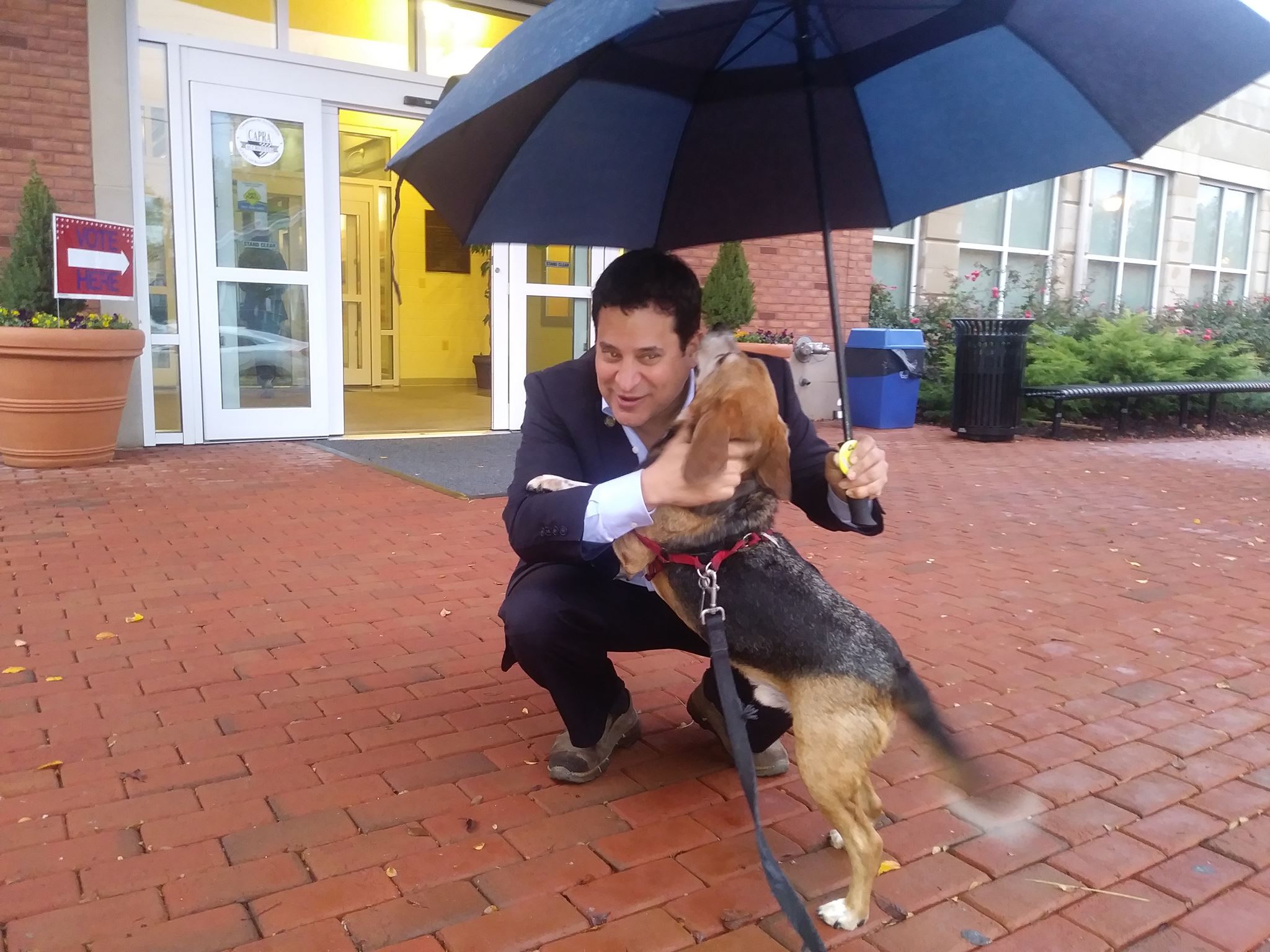
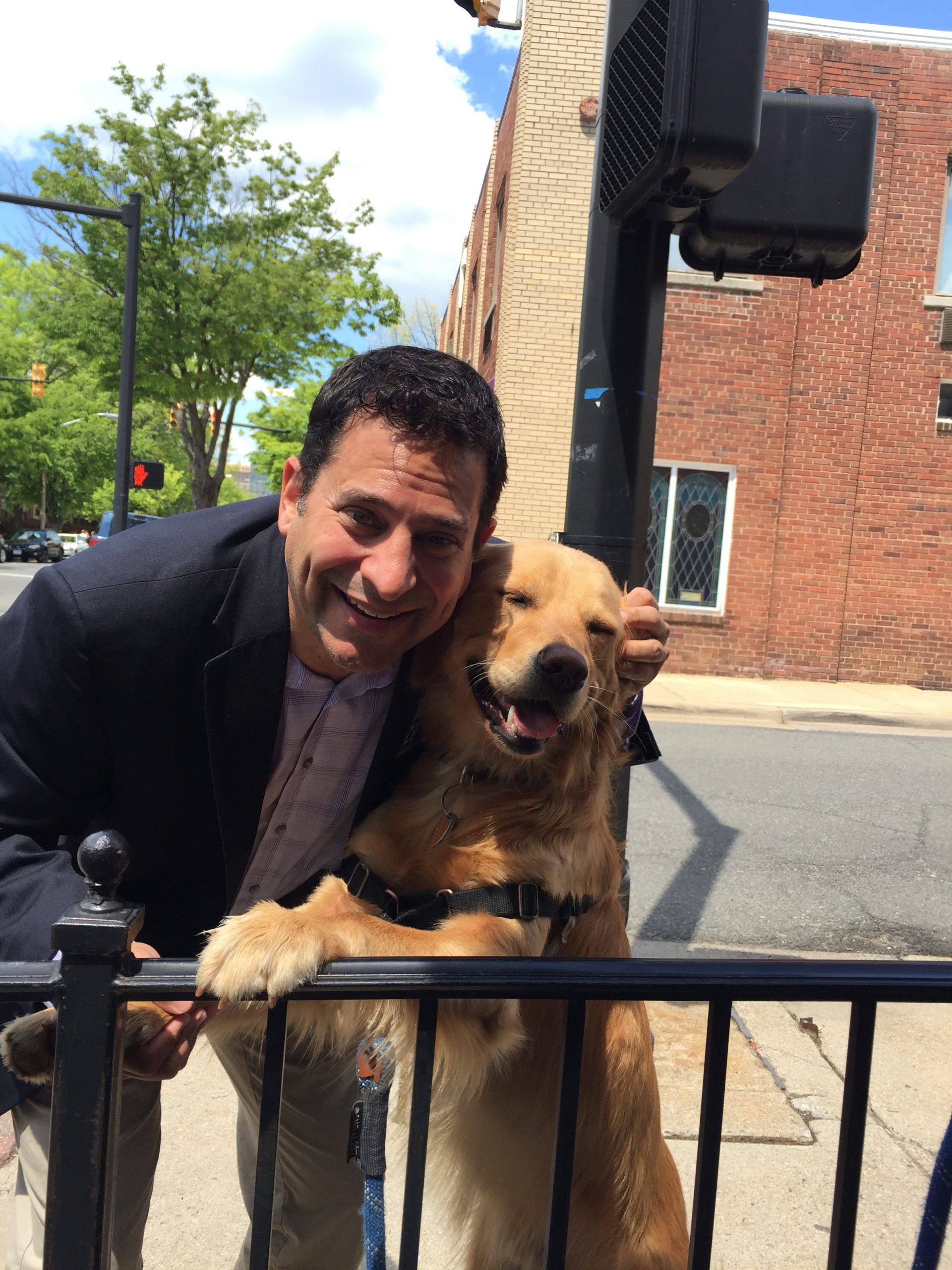
Margaret Mead’s maxim speaks to me: “Never doubt that a small group of thoughtful, committed citizens can change the world. Indeed, it is the only thing that ever has.”
Many of my most transformative achievements were seen as impossible at first:
- Transforming the law on domestic violence to help children escape abuse and bring justice to my own family
- Founding one of the nation’s earliest marriage-equality organizations at a time it did not exist anywhere in the world and using public protest, legislation, and litigation to transform the legal landscape for same-sex couples.
- Instituting transparency to a centuries-old closed-door Virginia General Assembly
- Providing 24/7 care to survivors of sexual assault and domestic violence in Northern Virginia
- Playing a major role in changing Virginia from a “everyone gets a gun no questions asked” state to a leader in responsible gun regulation. (I’m not satsfied yet, but we’re on our way.)
- Beginning the process at the state level of removing Virginia’s long-standing memorials and icons of systemic racism
- Killing a slew of bad “uncontested bills” that colleagues allowed to slip through the cracks by reading the details, finding the hidden mistakes and preventing them from becoming law
- Working across the aisle wherever possible, including on once-difficult issues like transparency, animal rights and rape-kit testing.
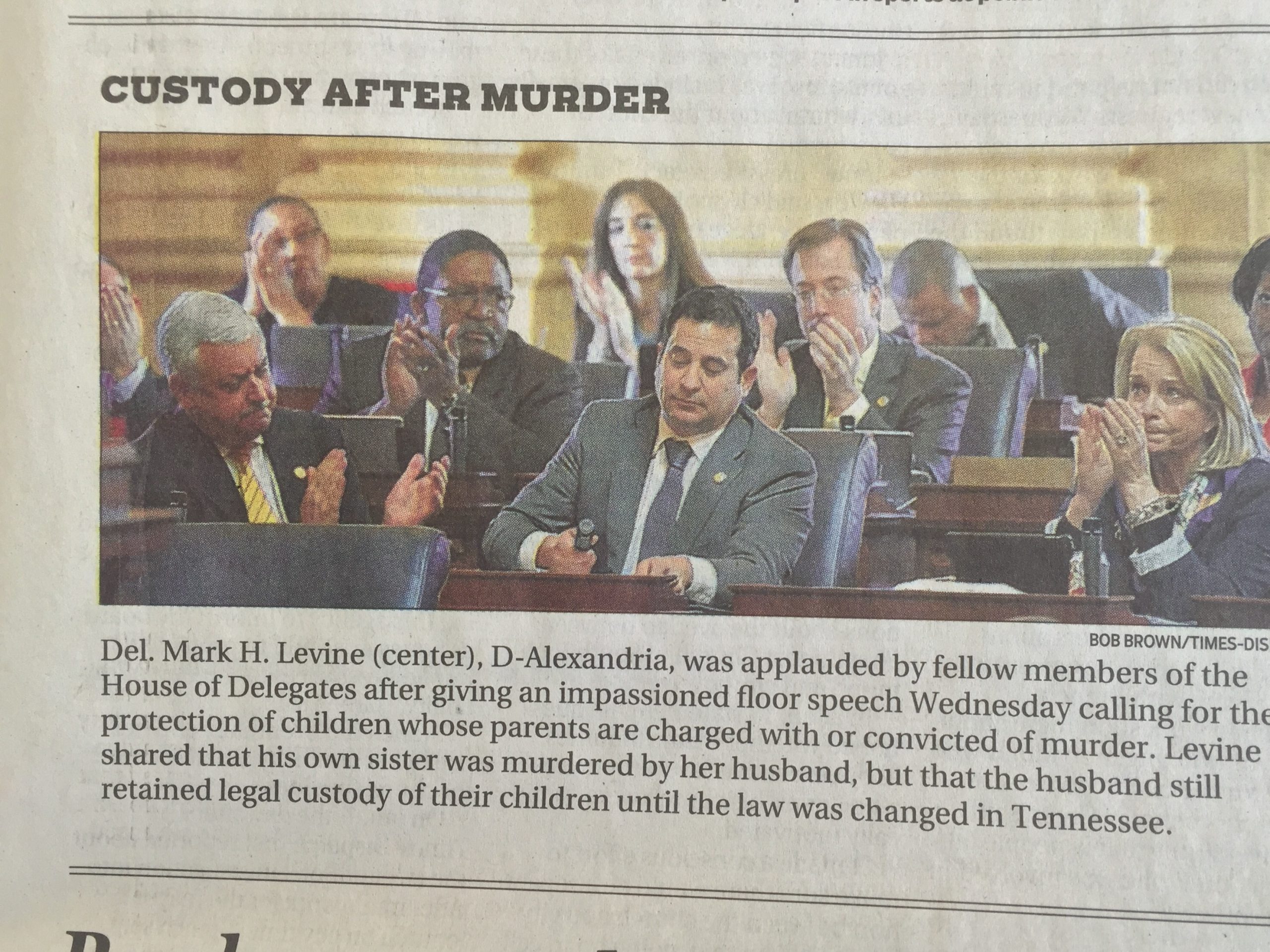
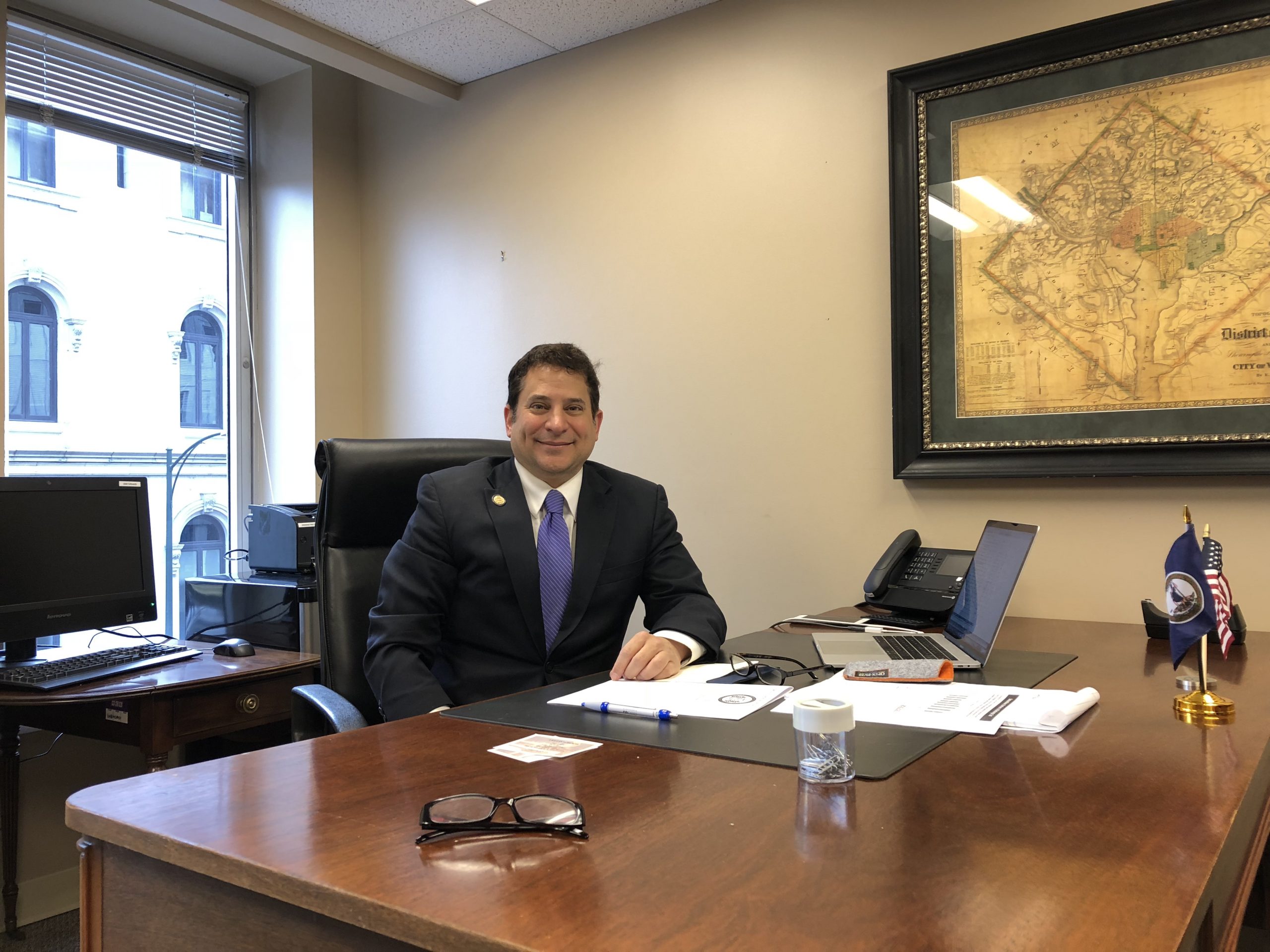
Not every constituent needs a transformative solution:
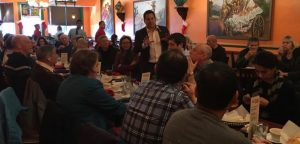
Mark’s Monthly Meetup
I believe I’m the only Delegate or to meet on a monthly basis in an open forum with constituents and non-constituents. When constituents don’t come to me, I go to them, including (when necessary) with translators.
My office has provided top-notch constituent service on everything from vaccinations to the DMV. We made sure underserved communities got their share of testing, vaccinations, and COVID relief. (The Virginia Employment Commission has been more frustrating. That’s one thing I hope to improve as Lieutenant Governor.)
But mostly I just look to solve problems wherever I can. I helped a constituent get reconnected with the love of his life who was suffering from Alzheimer’s and estranged from him. I helped the Alexandria Symphony find an economic solution to its parking situation. I reclaimed excess monies the Virginia Department of Transportation charged Alexandria and Arlington on a bridge project. I helped rescued some of Virginia’s more ugly history from obscurity. I helped organize unions, promote collective bargaining, and insist that Amazon treat its workers fairly. The list goes on and on.
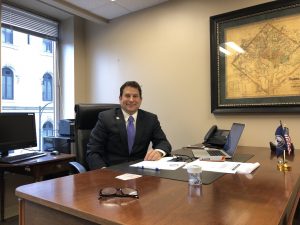
In my Richmond office ready to serve you
Here are some testimonials of some of the work I’ve done Behind the Scenes.
 I’ve dedicated a life of public service to Janet’s loving memory.
I’ve dedicated a life of public service to Janet’s loving memory.